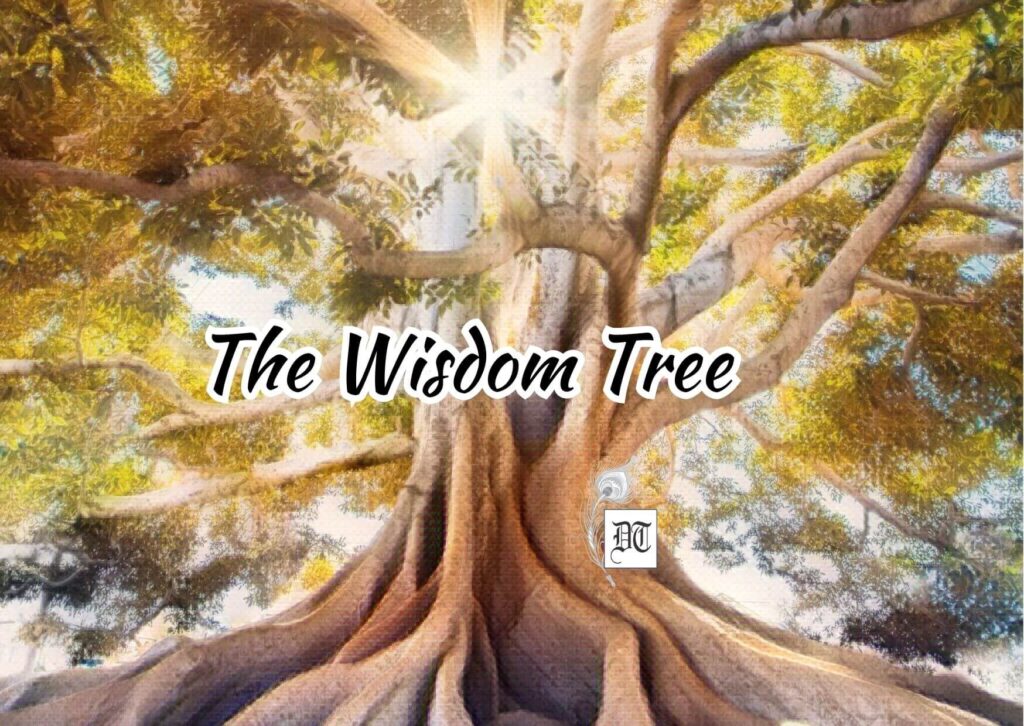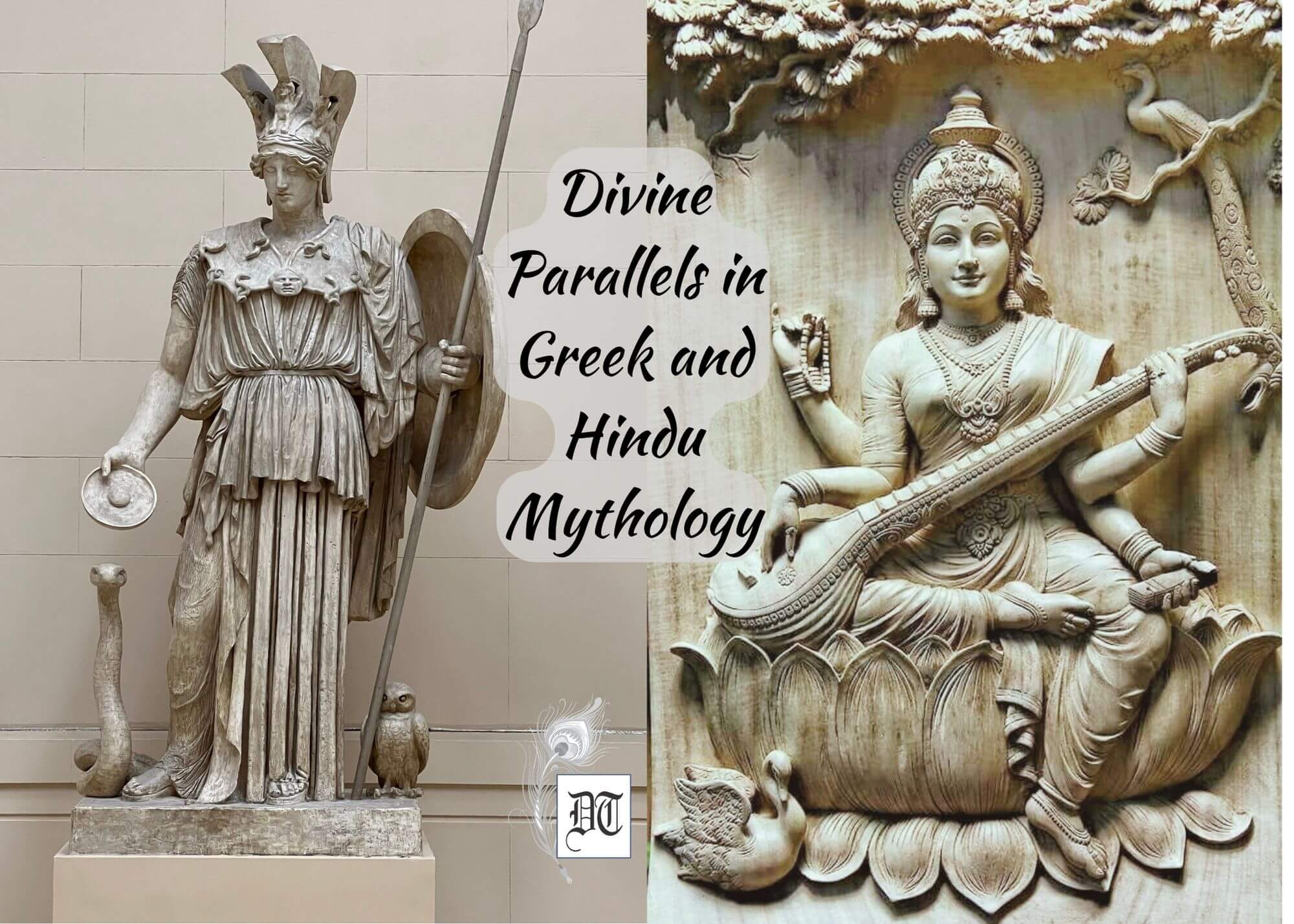Rajul delves into the interconnected gods and goddesses in Greek and Hinduism, revealing shared human experiences, values, and the cycle of creation, preservation, and destruction, exclusively for Different Truths.

Greek mythology and Hinduism are both marked by a rich legacy of gods and goddesses, each with unique characteristics and stories. While these two belief systems originate from different corners of the world, there are intriguing parallels between the deities of Greek mythology and Hinduism.
In this exploration, we delve into the captivating similarities between some of the principal gods and goddesses in these ancient mythologies. Greek mythology is popular and has often been part of literature and even children’s adventure books. Their beautifully depicted deities exhibit stark similarities to the Hindu pantheon. Here, I explore how they are similar and what lessons we take away from this fact.
Zeus and Indra: Zeus, the King of the Olympian gods in Greek mythology, shares similarities with the revered deity Indra in Hindu mythology. Zeus, wielding thunderbolts and presiding over the heavens, mirrors Indra’s role as the god of thunder, lightning, and storms. Both are powerful rulers who exhibit leadership and supremacy among the gods, and both possess thunder weapons: Zeus’s thunderbolt and Indra’s Vajra. Additionally, both are known for their valour and are associated with the sky and atmospheric phenomena.
The graceful and wise goddess Athena in Greek mythology finds resonance with Saraswati, the Hindu goddess of wisdom…
Athena and Saraswati: The graceful and wise goddess Athena in Greek mythology finds resonance with Saraswati, the Hindu goddess of wisdom, knowledge, and the arts. Athena, born fully grown and armoured from the head of her father Zeus, is revered as the goddess of strategic warfare, handicrafts, and wisdom. Similarly, Saraswati embodies wisdom, learning, music, and the arts, playing the veena, a musical instrument, and adorning herself with symbols of knowledge. Both goddesses represent intelligence, creativity, and learning, inspiring devotees in their respective domains.
Hades and Yama: Hades, the ruler of the Underworld in Greek mythology, bears some resemblances to Yama, the god of death and the underworld in Hinduism. Hades governs the realm of the dead in Greek mythology, while Yama oversees the cycle of life, death, and rebirth in Hindu belief. Both entities preside over the afterlife, maintaining order and justice in their realms. Hades and Yama, despite their association with the underworld, are not merely symbols of fear but also stand as custodians of moral order and justice.
Both goddesses symbolise the aspects of feminine grace, beauty, and abundance, albeit in different cultural contexts.
Aphrodite and Lakshmi: Aphrodite, the goddess of love and beauty in Greek mythology, finds her reflection in the figure of Lakshmi in Hindu mythology. Aphrodite embodies love, pleasure, and procreation, and her allure is tied to the concept of beauty. Lakshmi, the goddess of wealth, fortune, and prosperity, is also associated with beauty, grace, and charm. Both goddesses symbolise the aspects of feminine grace, beauty, and abundance, albeit in different cultural contexts.
Poseidon and Varuna: Poseidon, the god of the sea in Greek mythology, shares similarities with Varuna, the Vedic deity of oceans and water. Poseidon rules over the seas, storms, earthquakes, and horses, and is depicted with a trident, symbolising his command over water. Varuna, in Hindu mythology, presides over the celestial ocean, maintaining the cosmic order and is associated with water, rain, and the aquatic realm. Both gods are guardians of water bodies and share authority over the natural elements, emphasising the significance of water in their respective cultures.
Apollo and Surya: Apollo, the god of music, poetry, and healing in Greek mythology, bears a resemblance to Surya, the solar deity in Hinduism. Apollo symbolises light, truth, and the arts, often portrayed as an archer or lyre player. Surya, the sun god, represents the radiant source of light and life and is revered as the dispeller of darkness. Both deities represent the power of illumination, creativity, and healing, drawing similarities in their association with light and artistic pursuits.
Artemis, the goddess of the hunt and wilderness in Greek mythology, shares affinities with Durga, a fierce warrior goddess in Hindu belief.
Artemis and Durga: Artemis, the goddess of the hunt and wilderness in Greek mythology, shares affinities with Durga, a fierce warrior goddess in Hindu belief. Artemis is associated with the protection of wildlife and young maidens, embodying independence and the hunt. Durga, a warrior goddess, symbolises divine feminine power, courage, and protection, often depicted riding a lion and battling against evil forces. Both goddesses showcase strength, independence, and protective nature, revered for their prowess in safeguarding their devotees.
Similarly, there are other instances in which other Hindu deities find their parallel in Greek mythology. While the parallels between Greek and Hindu mythologies are striking, it’s important to note the distinct cultural contexts and unique narratives surrounding these deities. The similarities between these gods and goddesses across these diverse mythological traditions offer a fascinating glimpse into the universal themes of human experience, echoing through the ages and across different civilisations.
The parallels between the gods and goddesses of Greek mythology and Hinduism shed light on the shared motifs of human existence, values, and the eternal dance between the forces of creation, preservation, and destruction. These cross-cultural comparisons invite us to appreciate the diverse yet interconnected ways in which ancient civilisations conceptualised and revered their pantheons, drawing parallels that transcend geographical boundaries and time itself.
Picture design by Anumita Roy





 By
By


 By
By